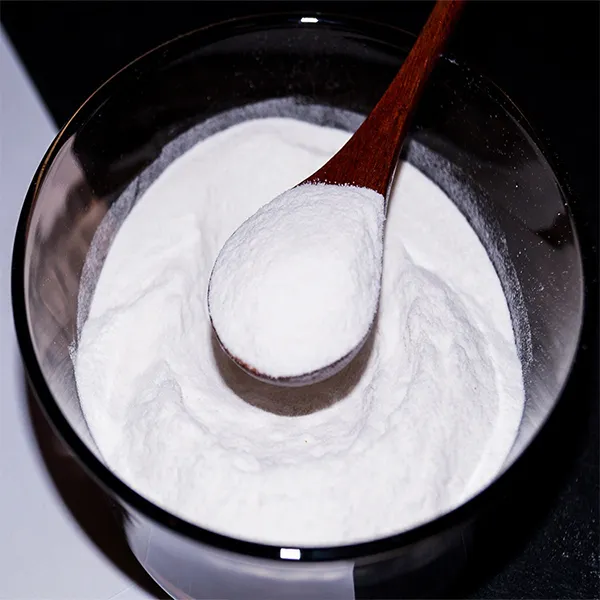Exploring the HPMC Manufacturing Landscape in China
Hydroxypropyl Methylcellulose (HPMC) has emerged as a crucial polymer in various industries, including pharmaceuticals, food, construction, and personal care. As global demand for HPMC continues to rise, China has positioned itself as a leading manufacturer and supplier of this versatile product. This article delves into the HPMC manufacturing landscape in China, examining the key players, production processes, and market trends.
What is HPMC?
Hydroxypropyl Methylcellulose is a semi-synthetic polymer derived from cellulose, a natural polymer found in plant cell walls. HPMC is prized for its thickening, emulsifying, and film-forming properties. In the pharmaceutical industry, it is frequently used as a binding agent in tablets and as a controlled-release agent in drug formulations. In the food industry, it serves as a food additive for improving texture and consistency. Additionally, HPMC is popular in construction for enhancing the workability of cement and gypsum products.
The Scope of HPMC Manufacturing in China
China has become a hub for HPMC production, with numerous manufacturers capable of meeting domestic and international demand. The country boasts advanced manufacturing facilities, developed supply chains, and a wealth of raw materials. Chinese manufacturers have invested heavily in production technologies to enhance efficiency and quality, ensuring they can compete on a global scale.
Major Manufacturers
Key players in the Chinese HPMC manufacturing sector include large chemical corporations and specialized companies. Notable manufacturers such as Shandong Hightime Chemical Co., Ltd., Shanghai Aidea Chemical Co., Ltd., and Zhejiang Kaimeng Chemical Co., Ltd. have established strong reputations for their reliable products and customer service. These companies leverage modern production techniques and strict quality control measures to ensure their HPMC products meet international standards.
Additionally, many of these manufacturers have obtained various certifications—such as ISO 9001 and GMP—demonstrating their commitment to quality and safety. This is particularly important in the pharmaceutical and food industries, where regulatory compliance is vital for market entry.
china hpmc manufacturer

Production Processes
The production of HPMC typically involves the following stages cellulose extraction, etherification, and drying. The process begins with the extraction of cellulose from plant materials, which is then treated with propylene oxide and methyl chloride in a controlled environment to create HPMC. Once formed, the material is dried to achieve the desired consistency and moisture content.
Technological advancements have led to more eco-friendly processes, reducing waste and energy consumption during production. Many Chinese manufacturers are adopting these green practices, aiming to reduce their environmental footprint while maintaining competitive costs.
Market Trends and Future Prospects
The demand for HPMC is expected to continue its upward trajectory, driven by growth in the pharmaceutical and construction sectors. The global shift towards more sustainable products also propels interest in HPMC, as its biodegradable nature aligns with eco-friendly initiatives. Furthermore, the rise of the health and wellness trend, coupled with increasing consumer awareness about food additives, positions HPMC as a favorable choice in the food industry.
Chinese manufacturers are actively expanding their production capabilities to meet these demands. Investment in research and development is on the rise, with many companies exploring improvements in HPMC formulations to enhance functionality and broaden applications. Collaborations with universities and research institutions have become more common, fostering innovation within the sector.
Conclusion
China's HPMC manufacturing industry is a dynamic and rapidly evolving sector. With a robust manufacturing infrastructure, a focus on quality, and an eye on sustainability, Chinese manufacturers are poised to maintain their position as leaders in the global HPMC market. As demand for this versatile polymer grows across various industries, the future looks promising for both manufacturers and consumers alike. The continued evolution of production technology and adherence to quality standards will be key factors in shaping the trajectory of HPMC production in China and beyond.
-
Rdp Powder: Key Considerations for Wholesalers in the Building Materials IndustryNewsJul.08,2025
-
Key Considerations for Wholesalers: Navigating the World of Hpmc - Based ProductsNewsJul.08,2025
-
Hpmc Detergent: Key Considerations for WholesalersNewsJul.08,2025
-
Key Considerations for Wholesalers: China Hpmc For Tile Adhesive, Coating Additives, Concrete Additives, and MoreNewsJul.08,2025
-
Crucial Considerations for Wholesalers: Navigating the World of Construction MaterialsNewsJul.08,2025
-
Key Considerations for Wholesalers Sourcing Additive For Cement, Additive For Concrete, Additive For Putty from Additive Manufacturer Shijiazhuang Gaocheng District Yongfeng Cellulose Co., Ltd.NewsJul.08,2025




